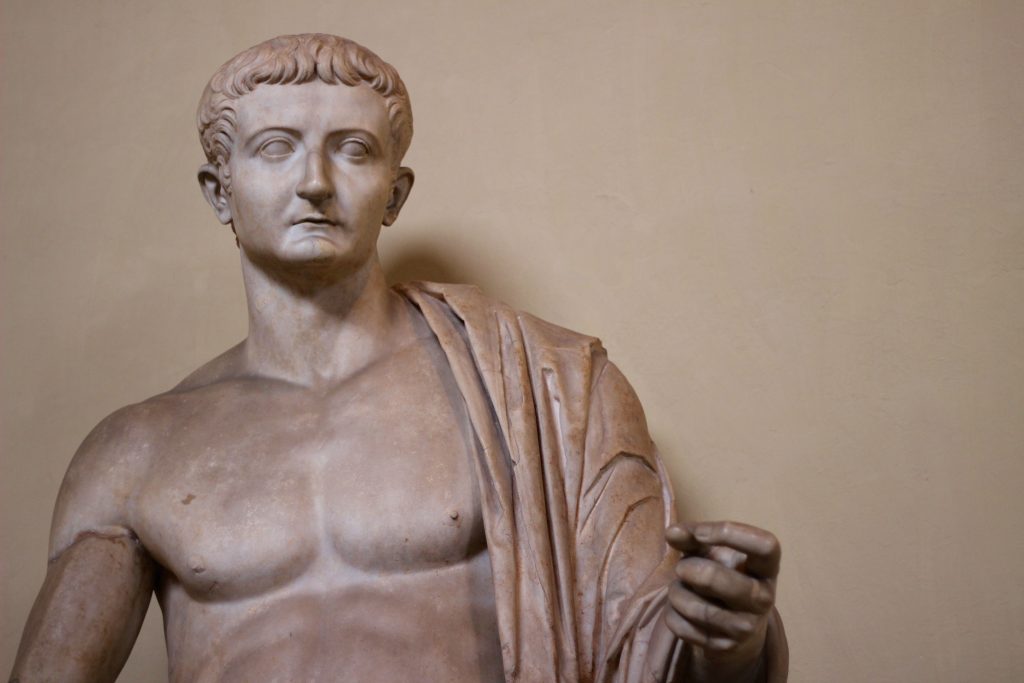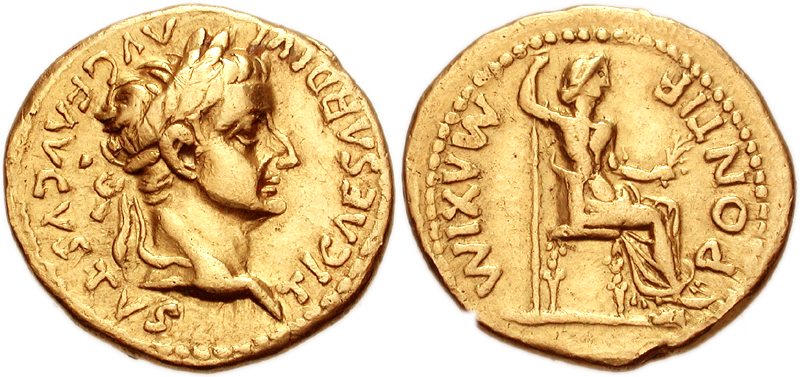
PHOTO: flickr
Last time on History’s Nutcases, we talked about a man named Jemmy Hirst, who fancied riding a bull he’d trained to jump fences like a horse, made all sorts of crazy inventions, and was so eccentric that he got asked to tea by the king of England. This week, we’re talking about a person who was much less harmless, and much more…well…tyrannical. Tiberius had a few strange habits and fears, sure, but its not eccentricity that makes this Nutcase stand out. It’s his sadistic reign of terror over the Empire of Rome.
Early Life and Historical Background
Tiberius, born Tiberius Claudius Nero, was born on November 16 in 42 BC. He was the second emperor of Rome after the famous Augustus Caesar. He was named after his father, Tiberius Claudius Nero, who was a high priest and magistrate and formerly the captain of Julius Caesar’s fleet. This guy knew everybody.
After Julius Caesar was assassinated by the Roman Senate, Rome was plunged into various civil wars. Tiberius’ family fought on the side of Mark Antony, but when the tide turned in favor of Mark Antony’s rival, Octavian, Tiberius and his family were forced into hiding. They fled to Sicily, then Greece. Octavian renamed himself Caesar Augustus and became the first true emperor of Rome. By the time Tiberius was three, Augustus granted his family amnesty and they returned to Rome.
![Augustus Caesar (Octavian) [PHOTO: shortbiography.com]](https://historythings.com/wp-content/uploads/2017/01/Augustus-Caesar-Gaius-Octavius.jpg)
Augustus Caesar (Octavian) [PHOTO: shortbiography.com]
Tiberius was raised with all the prestige and education that a little prince would be. He was taught philosophy, rhetoric, and battle strategy, and was kept close to Augustus’ side, often touring with him and posing during ceremonies and parades. As a young man, he fought in Gaul, displaying impressive military prowess. Even when his mother was accused of adultery and exiled by Augustus, he remained in the Emperor’s favor, and grew proud and powerful. He was one of four young men who were in line for the Roman throne, and one by one, his competition dropped away.
Postumus was exiled. Gaius was killed in Gaul. Lucius died in 2 BC in Massilia. With no one else left to inherit the throne, Augustus Caesar summoned Tiberius to Rome in AD 4 and named him heir.
Tiberius’ Reign of Terror
In AD 14, when Augustus Caesar died, Tiberius became Supreme Emperor of Rome.
Tiberius began his reign by murdering the only living contender for the throne, Postumus, and intimidating the Roman Senate with his Praetorian Guard. He ruled Rome with an iron fist.
For a time, his laws and policies were temperate. He strengthened the Roman navy, ceased gladiatorial games throughout Rome, and even refused to let a calendar month be named after him, thinking it too extravagant. Not only that, but he put a stop to the squandering and waste of the imperial treasury. Under Tiberius, Rome grew rich and powerful.
However, in AD 23, Tiberius’ son, Drusus, died. The Emperor was never the same. From then on, madness began to spread through his mind. He spent less and less time running Rome and put his Praetorian captain, Sejanus, in power. From there, Tiberius withdrew to Capri, and ruled as Emperor only in name.
![Ruins of one of Tiberius' villas on Capri. [PHOTO: salsacdn.com]](https://historythings.com/wp-content/uploads/2017/01/P1160521-1648x1152_d_0_0_800.20150603103914.jpg)
Ruins of one of Tiberius’ villas on Capri. [PHOTO: salsacdn.com]
Back in Rome, he distracted the Senate and the Roman public from his paranoia and sexual deviancy by building statues of Sejanus all over the city, and distributed all sorts of propaganda to keep Sejanus in power. Back at Capri, he had a massive villa built for himself – the “Villa of Jove”. It was at this Villa of Jove that he began to indulge his pedophilia.
Nobody but members of his court were allowed on Capri while he was living there. Even fishermen who accidentally landed on the island or fished in its waters were severely punished.
Tiberius was so busy on Capri, though, that he didn’t notice that Sejanus was plotting against him for a good while. He soon caught wind of treason, however, and Tiberius decided to come back from Capri and deal with it immediately.
In AD 31, Tiberius summoned Sejanus to a Senate meeting, condemned him to death for treason, and executed him and his colleagues within the week. After that, the Emperor went on a killing spree. Tacitus describes it best:
“Executions were now a stimulus to his fury, and he ordered the death of all who were lying in prison under accusation of complicity with Sejanus. There lay, singly or in heaps, the unnumbered dead, of every age and sex, the illustrious with the obscure. Kinsfolk and friends were not allowed to be near them, to weep over them, or even to gaze on them too long. Spies were set round them, who noted the sorrow of each mourner and followed the rotting corpses, till they were dragged to the Tiber, where, floating or driven on the bank, no one dared to burn or to touch them.”
Death

PHOTO: romanemperors.com
For the remaining six years of Tiberius’ life, he terrorized Rome while the Senate scrambled to name a successor. Tiberius was convinced Sejanus had contrived a plot not only to overthrow him, but had also been responsible for the death of his son. He commissioned inspectors and torturers to uncover “evidence” about anybody who might have been involved in treasonous activity. No one on Capri or in Rome was safe.
Eventually, Tiberius found the apple of his eye in his morally questionable adopted son, Caligula. He named him his successor, saying: “I am nursing a viper in Rome’s bosom.”
In the spring of AD 37, Tiberius dislocated his shoulder during a ceremonial javelin game. After that, he fell ill and lapsed into a coma. His doctors proclaimed that he would die within a day. Caligula was sent for, the Praetorian Guard declared their fealty to him, and the Senate proclaimed that Caligula was now the Supreme Emperor of Rome.
Well, in an awkward turn of events, Tiberius recovered, woke up, and asked for a hot meal. Rome was thrown into confusion.
Only the new captain of the Praetorian Guard, Macro, knew what had to be done to keep Rome from utter chaos. The next day, he slipped into Tiberius’ chambers and smothered the elderly ex-ruler with a pile of blankets.
Just like that, the rule of Rome had passed from one tyrant to another.


